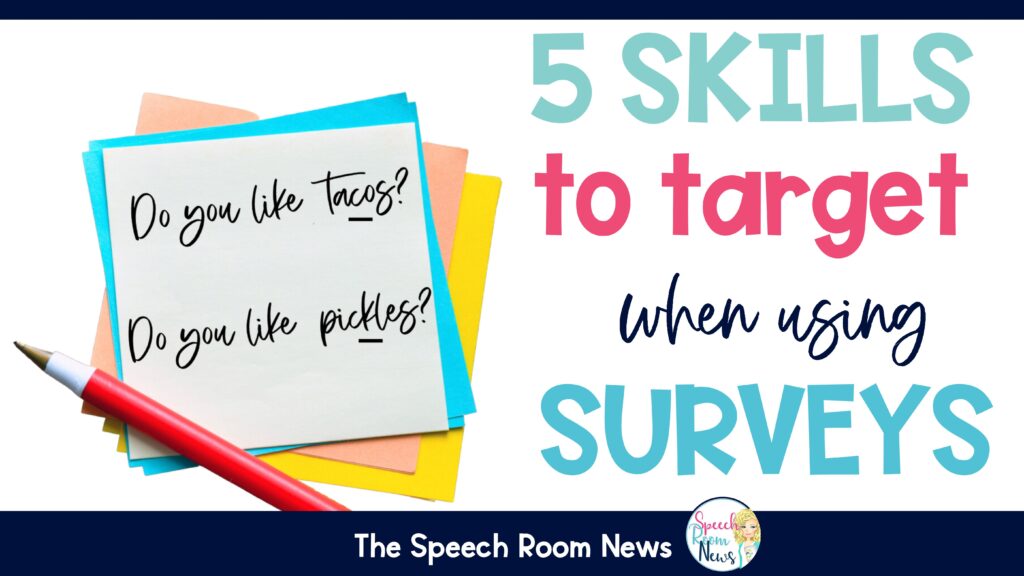
Have you ever considered using surveys in speech therapy as an activity for students to work on their speech and language goals? Surveys offer an opportunity for natural practice, confidence-building and breaking away from the typical repetitive speech therapy. There are actually 5 skills that I want to address today that you can easily work on by using surveys during speech therapy as an activity for students.
Why You Should Use Surveys as a Speech Therapy Activity
Surveys offer a unique opportunity for students to actively engage in their therapy sessions while targeting a wide range of speech and language skills. By involving students in the creation of their own survey, you can actually embed language and speech targets into the questions, ensuring that each question serves as a learning opportunity to practice their own goals. This not only encourages critical thinking and creativity but also helps promote syntax, question formation and listening comprehension skills.
How to Use Surveys in Speech Therapy
Encouraging your students to create their own surveys is a fantastic way to actively involve them in the process and get them excited to use surveys. As you guide them in coming up with the survey questions, be sure that you secretly embed language and speech target skills into the survey. This could involve focusing on specific speech sounds, practicing syntax and question formation or targeting listening comprehension.
To make the experience even more relatable for your students, you might consider making the survey seasonal or centered around a topic that is important to the student. For example, I like to use the camping surveys from this Preschool Speech & Language Camping Theme Kit during October and November. Sometimes I will even pull it out to use at the end of the school year right before summer break for families that may camp in summer.
After you help your student develop a survey, then help them go around the classroom, school or to the office to collect responses for the survey. This is the most important part (and the fun part!)
5 Skills to Target by Using Surveys to Make Speech More Fun for Students
1. Speech Sound Disorders
When working with students who have speech sound disorders, it’s super helpful to incorporate their target sounds into the survey questions. This gives them a chance to practice their articulation skills in a fun and purposeful way. For example, if they’re working on the /r/ sound, they can create questions like, “Do you like red or blue better?” or “What’s your favorite restaurant?” This not only helps them practice their speech sounds, but also makes them more aware of using their target sound in real-life situations.
As they go around giving their survey and receiving responses, they can actively work on carryover of their target sound correctly, making speech therapy more engaging and meaningful. This is one of my favorite ways to target carryover with elementary students to make their speech goals meaningful for them.
2. Syntax and Question Formation
Surveys are also a great way for students to practice coming up with some decent questions. When they create their survey questions, it’s an opportunity for them to reinforce the right way to structure sentences and form the questions that they want to ask. By paying attention to things like word order, verb usage and using the right question words, they can get better at making grammatically correct questions.
For example, they could ask, “What’s your favorite food?” or “How often do you go to the movies?” As they create and give their surveys, they’ll gain more experience in using proper syntax and making questions that make sense. This is a much more practical way to work on language skills.
3. Listening Comprehension and Drawing Conclusions
Surveys are not just about asking questions; they can also help students improve their listening skills and work on compiling the information for synthesis. After they give their surveys and collect responses, they can use those responses for listening comprehension activities. They must record their participants answers correctly and then organize the data the collect.
For example, they could summarize the information they gathered or look for patterns in the data. They might look at one of the example questions asked above: “What’s your favorite food?” and sort the answers into groups to see the similarities and differences. Doing this kind of practice helps them get better at understanding spoken language, making inferences and picking out important details. It’s a nice way to work on their overall receptive language skills.
4. Social Skills
Surveys can also be a great way to work on social skills. Surveys give students a chance to interact with others while asking their questions. It helps teach kids how to approach people politely and respectfully when giving their surveys. They can practice things like using nice greetings, making eye contact and being good listeners during their conversations. A big skill we work on during surveys is how and when to interrupt a busy adult. An adult folding notes to go home in backpacks is different than adult on the phone with a parent. Work on how and when to ask an adult a question.
It also helps them build confidence in starting conversations, taking turns and responding appropriately to others. This is one of the biggest reasons that I like to use surveys with my students as an SLP. It provides a natural yet structured way for students to practice their social skills.
5. Executive Functioning
Finally, surveys require some important executive functioning skills, which is why they are awesome for working on those skills. There’s planning involved, like deciding what questions to ask and how to organize the survey. Then there’s the actual doing part, where students have to stay organized, manage their time and pay attention to details.
They also get to review the surveys and think about the data that they collected, analyze the results and figure out what it all means. Going through these steps helps them develop skills like planning, organizing, starting tasks and keep track of what they’re doing. It’s a meaningful way to boost their executive functioning skills.
Make Speech Therapy More Fun by Using Surveys
Using surveys as an activity to collect data on IEP goals is just one way that you can make speech therapy more fun and interesting for your students. Surveys are a powerful tool for engaging students during speech and language, while targeting a range of skills. By incorporating surveys into your speech sessions, you provide students with natural practice opportunities, foster confidence and break away from the typical drill and practice. If you are ready to check out some pre-made surveys, you can try some from the Preschool Speech & Language Camping Theme Kit.
Are you ready to try using surveys in speech therapy yet?
Join the SRN newsletter!

I'm so glad you stopped by! If you'd like to keep up with the newest posts and get exclusive free downloads, please sign up for the newsletter! Your first freebie is ready as soon as you subscribe and confirm your email!
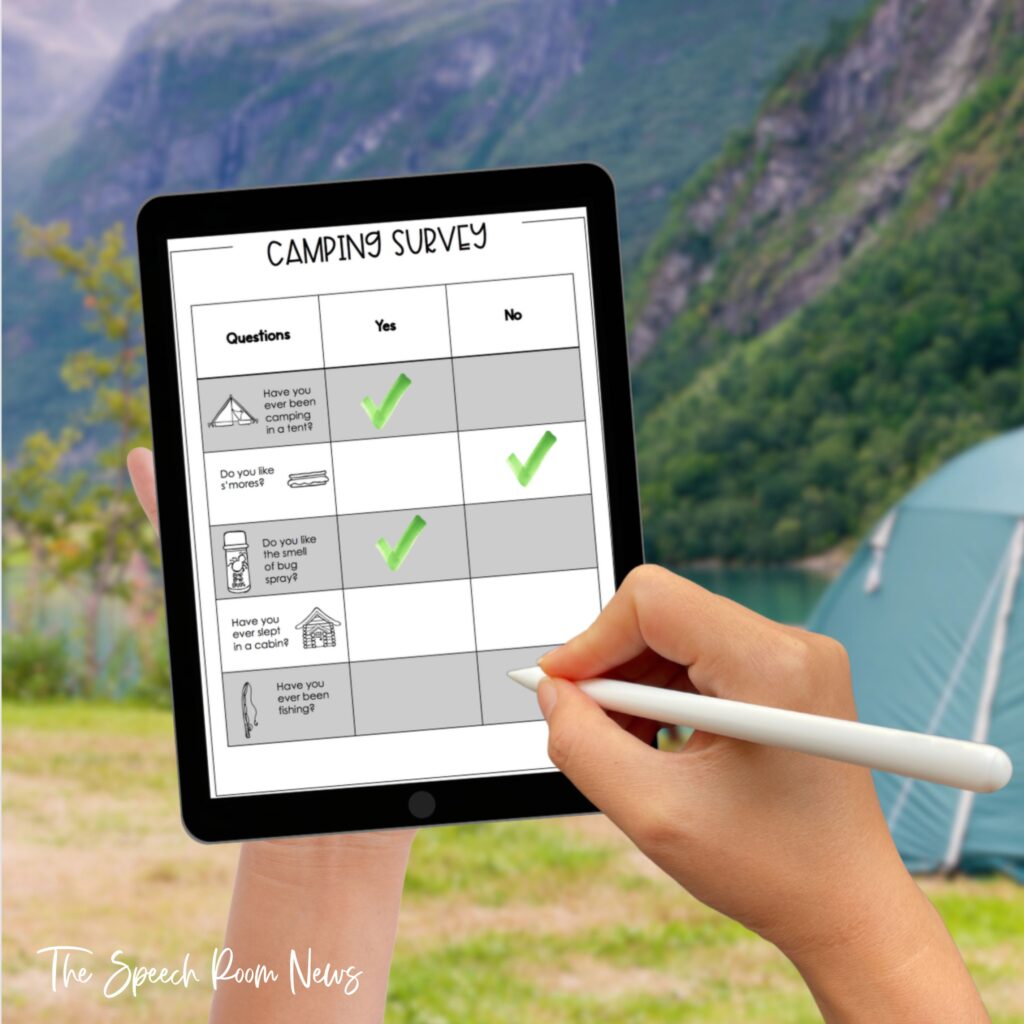
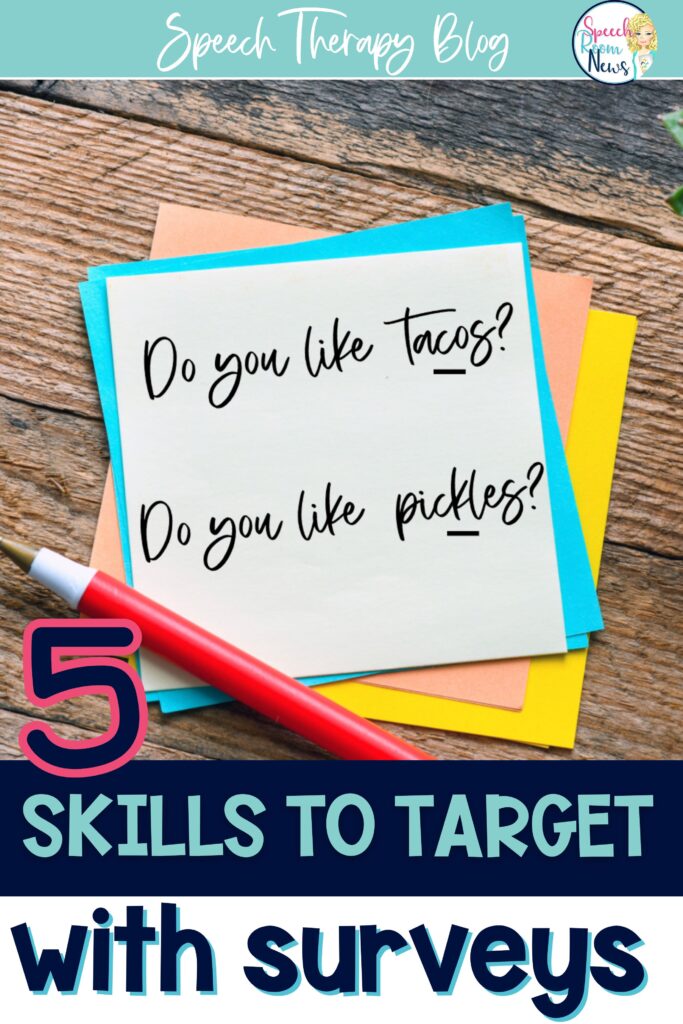
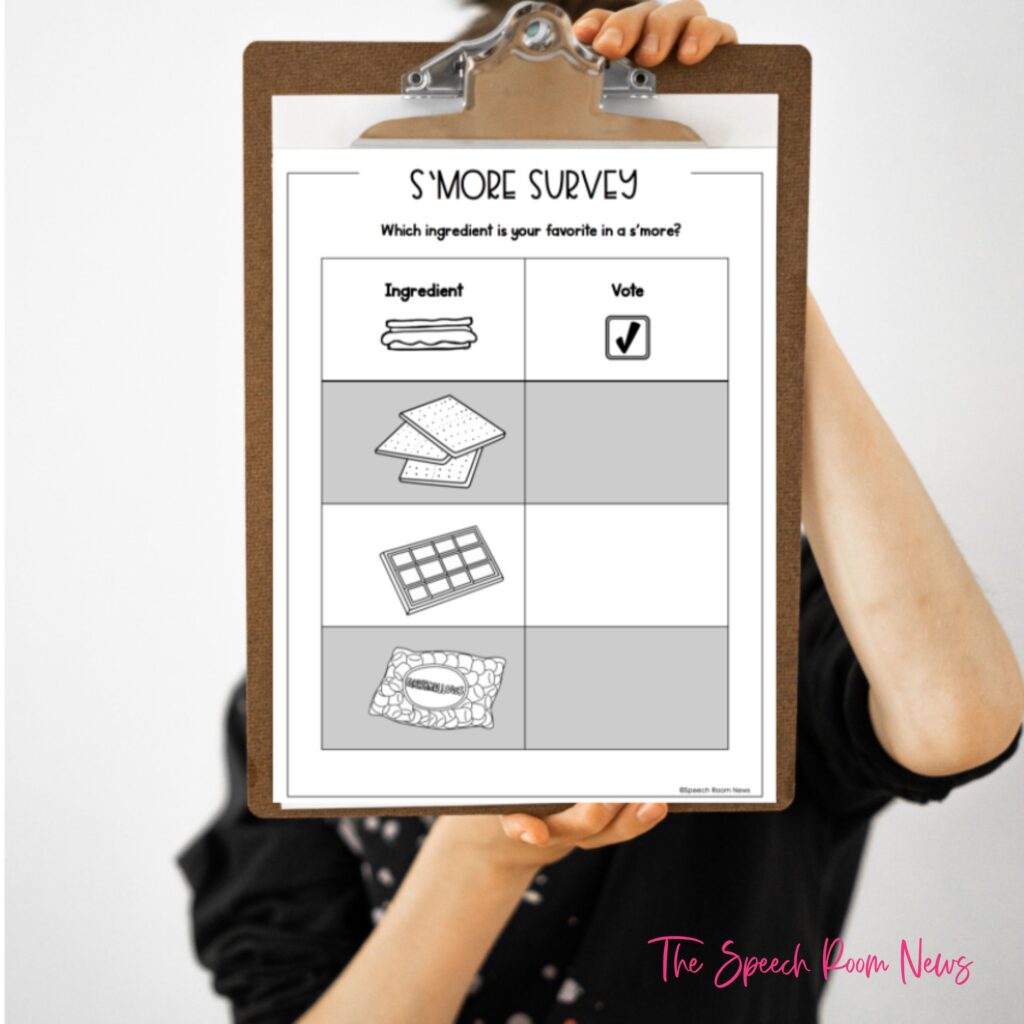
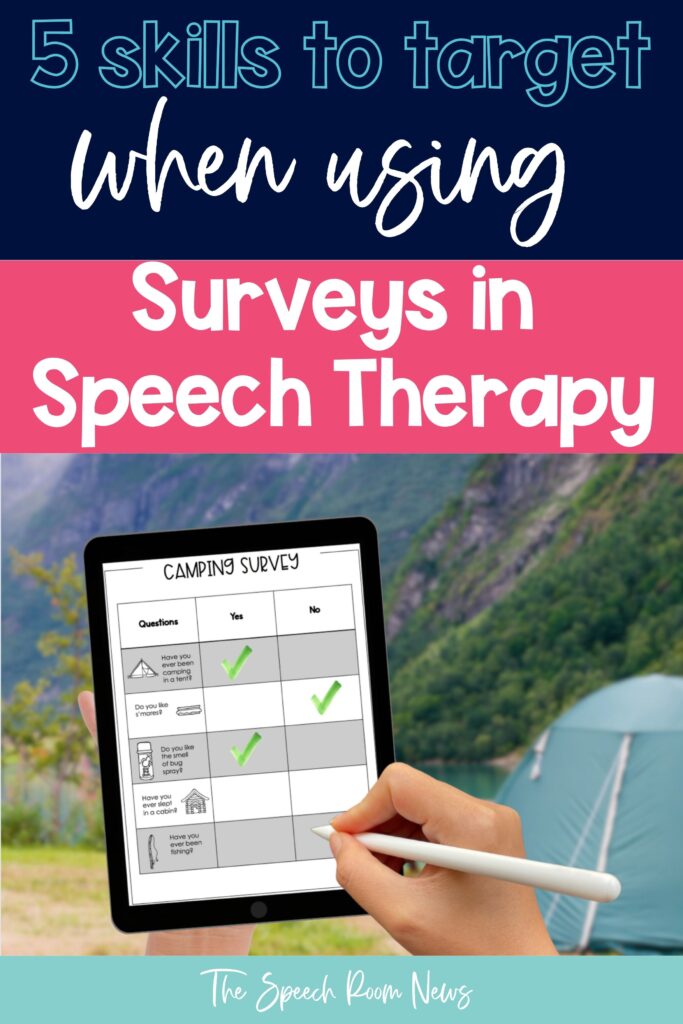

Leave a Reply